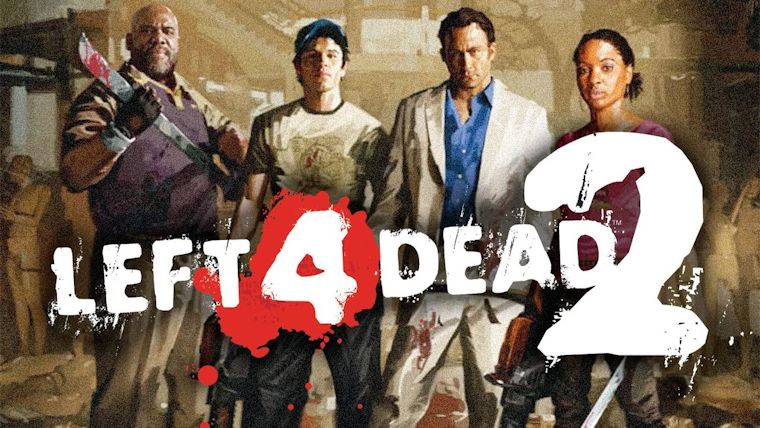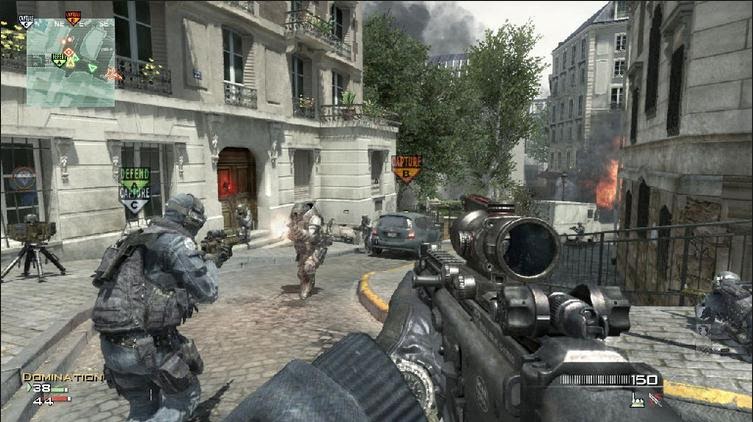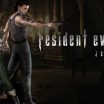The Big Book of Controversies – Chapter V


Maybe A Little Too Human – Epic Games v. Silicon Knights
2007 – 2012
Founded by Dennis Dyack in 1992 and headquartered in St. Catharines, Ontario, most of Silicon Knight’s early games were geared towards early PC brands such as the Atari ST and Amiga, though they eventually branched out to consoles by 1996 with their first big hit being the original Blood Omen: Legacy of Kain title for the original PlayStation. Spurred on by this early success, the company then went on to produce the cult classic Eternal Darkness: Sanity’s Requiem and the remake of the original Metal Gear Solid (renamed Metal Gear Solid: The Twin Snakes) for the Nintendo Gamecube in 2002 and 2004 respectively. However, by 2008 their fortunes had drastically taken a turn for the worst.
Following the poor reception and sales of their new Too Human title (August 2008), Silicon Knights, who in 2005 announced that all of their new IPs would be using Epic Games’ Unreal 3 Engine, sued the developer claiming that Epic had withheld many of the engine’s key elements and features adding that Epic had missed crucial deadlines for code delivery and that these “missing” features were being used exclusively for its own games like Gears of War.
On August 9, 2007 Epic counter-sued, claiming Silicon Knights did not pay the appropriate royalties for using its engine and willfully concealed elements of the engine’s code after falsely claiming it had abandoned the Unreal Engine through the course of Too Human’s development. On May 30, 2012, the courts ruled in favor of Epic Games, citing that Silicon Knights was guilty of copyright infringement, misappropriation of trade secrets, and breach of contract.
On November 7, 2012 the courts also ordered Silicon Knights to recall and destroy any and all unsold copies of its games developed with the Unreal Engine, which included Too Human and their 2011 release of X-Men: Destiny. They were also ordered to destroy any and all games currently in production using the engine’s code. These now-canceled games included: Silent Hill: The Box, Too Human 2: Rise of the Giants, Too Human 3, Eternal Darkness 2, Siren in the Maelstrom, The Sandman, and King’s Quest. This order also included digital games, and Silicon Knights was forced to remove Too Human and X-Men from all digital storefronts by January 1, 2014. As a result of the case, by May 16, 2014, Silicon Knights was forced to file for bankruptcy and a Certificate of Appointment was issued by the Office of the Superintendent of Bankruptcy in Ontario, with Collins Barrow Toronto Ltd. being appointed as Trustee in Bankruptcy.
Dennis Dyack, meanwhile, had left Silicon Knights by mid-2012 to form the new Precursor Games development company. His first attempt via Kickstarter was Shadows of the Eternals; a spiritual successor, according to Dyack, to the original Eternal Darkness: Sanity’s Requiem. However, in an article by Kotaku, sources close to the company alleged that Dyack had been embezzling funds from Silicon Knights for years, and jumped ship to avoid legal ramifications during the course of the Epic court case, which might have exposed his highly-illegal activities. Dyack eventually responded to the allegations with a YouTube video that you can find HERE.
Shadows of the Eternals, after attempting multiple Kickstarter campaigns, is currently on “indefinite hiatus.” Precursor Games, meanwhile, seems to have disbanded. There have not been any updates to the site since late 2013.

No Love From No-L4D2 – Valve and the Left 4 Dead 2 Boycott
2009
On November 17, 2009 Valve, working in conjunction with Turtle Beach Studios, shocked the gaming community by releasing the sequel to 2008’s critical and award-winning four player co-op zombie shooter, Left 4 Dead, a little over a year after its release. What was shocking about it was that it bucked the notion of “Valve Time,” a running gaming industry joke about the extended development time the company takes with releasing new intellectual properties or sequels. “Like a New York minute only the opposite,” some people said.
But rather than celebrate the news, many of Valve’s own community members cried foul. Following the game’s initial announcement at the 2009 E3 Convention, many original Left 4 Dead fans, concerned over the apparent lack of Left 4 Dead content, as well as the character designs, visuals, and music shown in the E3 demo, felt that they were inappropriate to the first game’s overall aesthetics, and that the release of the sequel so soon after the first game would fracture the community.
These fans soon formed the Steam community group called the “L4D2 Boycott (NO-L4D2)” and called upon many to support an outright boycott of the sequel. By the end of week of July 6, 2009, the group had grown to over 10,000 members, and had reached more than 37,000 member roughly a month later. In an interesting twist of events, Valve marketer Doug Lombardi called for calm, stating that the company was aware of the community’s concerns and asked them to “trust a little bit [longer].”
On September 2009 Valve Corp. flew two of the group’s most prominent members, Walking_Target and Agent of Chaos, to Valve headquarters, and allowed them early access to Left 4 Dead 2’s campaign. The company also flew down to Australia to visit “Joe W-A”, a very prominent Left 4 Dead modder. Gabe Newell jokingly reported that Valve was “boycotting” Joe’s new mod for the game when Joe asked when he would be flown to Valve in the same manner as the Left 4 Dead 2 boycotters. Joe was able to raise the required $3,000 through donations through his website, but ultimately Newell paid for the trip himself. Incidentally, Joe W-A donated his money to the Child’s Play charity.
On October 14, 2009 the 40,000 strong boycott group announced that they were ending their protest, citing that Valve was upholding their promise of additional content and fixes for Left 4 Dead, such as the recently released “Crash Course”, as well as the upcoming “The Passing” and “The Sacrifice” campaigns. On October 29, 2009, Gabe Newell, in an interview posted at the site, actually thanked the community for their passion and said, “for people who joined the Boycott Group on Steam … they’re actually pre-ordering the product at a higher rate than Left 4 Dead 1 owners who weren’t in the boycott”.
Left 4 Dead 2, meanwhile, went on to sell over 11 million units by August 11, 2012.

Fall of Duty: Black Oops – Activision v. Jason West and Vince Zampella
2010 – 2012
Originally the team behind the 2015 Inc.’s 2002 PC title Medal of Honor: Allied Assault, creators Vince Zampella, Grant Collier, and Jason West later went on to found Infinity Ward, with Activision offering early monetary support for their original World War II military shooter, Call of Duty. Activision eventually purchased Infinity Ward and, by 2007, the developer had moved the franchise on to more modern battlefronts. All told, the Call of Duty series has been both profitable for Activision and Infinity Ward, as well as award-winning. The original Call of Duty won over 90 awards and the series itself has sold over 100 million units. However, by 2010 their love affair had finally hit the rocks.
On March 1, 2010 Activison announced that I.W. co-founders Zampella and West had abruptly left Infinity Ward – despite rumors that they had been forcibly removed and fired by none other than Activision CEO Bobby Kotick. On March 2, 2010, Kotick addressed the Infinity Ward studio leads, confirming that the duo had been fired due to “breaches of contract and insubordination.” Following this announcement, nearly half of the remaining Infinity Ward employees resigned. Throughout April and May 2010, 46 employees, among them lead designers and programmers who worked on Modern Warfare 2, abruptly left the company.
However, this wasn’t the first time Activision had willfully tried to fire the duo before their 2010 termination. In court papers released in 2012, and after West and Zampella had filed a counter-suit against Activision on March 4, 2010 over “substantial royalty payments” that Activision failed to pay them in the weeks leading up to their termination, Activision had ordered its director of IT, Thomas Fenady, to “dig up dirt” on the duo in the summer of 2009 in order to “get rid of them.” In a sworn deposition Fenady testified that the company’s then-chief legal officer (now chief public policy officer) George Rose instructed him to gain access to West and Zampella’s email, voicemail and computer accounts by whatever means necessary, and that he shouldn’t worry about being caught and punished, because the order came down from Bobby Kotick himself.
Dubbed “Project Icebreaker”, Fenady tried to involve several outside parties, including Microsoft Corp., to help crack West and Zampella’s passwords. However Microsoft refused to comply without a court order. Fenady then approached third-party security specialist InGuardians, a D.C.-based network security consulting firm, to try and hack into their computers. The firm declined, stating that they did not feel comfortable with the “legal hurdles” over the request. Fenday then tried a more direct approach, trying to get the studio’s maintenance team to stage a fake fumigation or mock fire drill while he accessed West’s and Zampella’s computers directly.
On April 27, 2010, thirty-eight then current and former Infinity Ward members filed a lawsuit against Activision, seeking between $75 million and $125 million in compensatory damages from Activision for unpaid bonuses for their work on Modern Warfare 2. The lawsuit, filed by the “Infinity Ward Employee Group”, alleged that Activision withheld compensation from the plaintiffs in order to force them to stay with the studio and develop Modern Warfare 3. Activision later settled, issuing a check for $42 million. Infinity Ward Employee Group lawyer would later lament that this buyout was simply “a small portion of what we [were] seeking in litigation”.

By the mid-2011, Activision had amended its lawsuit against West and Zampella to include Electronic Arts as a defendant on the grounds that EA was involved in a conspiracy with West and Zampella; accusing EA of plotting to “destabilize, disrupt and … destroy Infinity Ward,” and that the head of its video game department, Seamus Blackley, had attempted to “hijack” West and Zampella away from Activision. EA later released a statement, via spokesman Jeff Brown, who described the lawsuit as “a PR play filled with pettiness and deliberate misdirection. Activision wants to hide the fact that they have no credible response to the claim of two artists who were fired and now just want to get paid for their work.”
After two years of legal suits and two delays of the original case, Activision eventually settled their dispute out of court with West and Zampella on May 31, 2012. While the terms of the settlement have yet to be revealed, both West and Zampella at the time stated that they were “more than pleased” by the results. Electronic Arts, not to be left out of the party, commented that “Activision’s refusal to pay their talent and attempt to blame EA were absurd. This settlement is a vindication of Vince and Jason, and the right of creative artists to collect the rewards due for their hard work.”
West and Zampella, meanwhile, had already formed new gaming studio Respawn Entertainment, with 38 of the 46 former-Infinity Ward employees currently working at the studio. Respawn’s first project, the always-online and Xbox exclusive multiplayer-centric “mech-shooter” Titanfall, released on March 11, 2014. Unfortunately, Jason West had retired prior to the game’s release on March 4, 2010, according to the Respawn homepage, to “take care of personal family matters.”
On March 27, 2012 lead Creative Strategist at Infinity Ward, Robert Bowling, announced his departure from the studio to form the new Robotnik development studio. Speculation suggested that, after a livestream interview with Machinima in which he stated that “I feel like we are in a f*cking era where everyone is so focused on subscriber numbers and all that stuff that we need to get back to what I feel like we did so much better in the old days of just plain good will, like stuff like the LAN patch, yeah it is lower priority but let’s get it out the f*cking door. Let’s just do it,” Bowling had garnered some rather negative feedback, both from Activision and the CoD community, as the real reason for his departure. Activision’s release of Modern Warfare 3 in 2011 under his tenure grossed more than $775 million globally in its first five days of availability.
Pages: 1 2





![[PROTOTYPE]](http://www.enthusiacs.com/wp-content/uploads/2020/03/title-104x104.jpg)


Leave a Reply